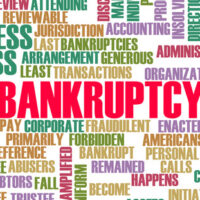Recent Blog Posts

Bankruptcy and Long-Term Care Costs: Addressing Debt from Nursing Homes and Assisted Living
As the population ages and healthcare costs continue to rise, many individuals and families face overwhelming debt related to long-term care costs. Whether for a loved one or yourself, the expenses associated with nursing homes, assisted living facilities, and in-home care can quickly deplete savings and lead to significant financial strain. For those unable… Read More »

How the No Surprises Act and Bankruptcy Work Together for Patients with Unexpected Medical Bills
Medical debt is one of the leading causes of financial stress for Americans, often forcing individuals and families into difficult financial situations, including bankruptcy. The No Surprises Act, which went into effect in January 2022, aims to protect patients from unexpected and often exorbitant medical bills. But while this law addresses many billing issues,… Read More »

Bankruptcy Adversary Proceedings
When filing for bankruptcy, most debtors focus on the primary goal of obtaining a discharge of their debts. However, in some cases, issues may arise that require additional litigation within the bankruptcy case. This process is known as an adversary proceeding. Adversary proceedings are lawsuits filed within the bankruptcy court to resolve specific disputes… Read More »

Can a Creditor Contest the Discharge of My Debt or My Bankruptcy?
When you file for bankruptcy, creditors have the right to challenge or oppose your bankruptcy discharge under certain circumstances. This process, often called an adversary proceeding, allows creditors to contest the discharge of specific debts or even the entire bankruptcy case. If you’re considering filing for bankruptcy or are already in the process, a… Read More »

Durable Power of Attorney and Bankruptcy: What You Need to Know
A Durable Power of Attorney (DPOA) is a legal document that allows a designated person, known as an “agent” or “attorney-in-fact,” to make financial or medical decisions on behalf of someone else, called the “principal.” This authority continues even if the principal becomes incapacitated. When it comes to bankruptcy, having a DPOA can play… Read More »

Bankruptcy Motion for Reconsideration: What You Need to Know
A motion for reconsideration in bankruptcy allows debtors or creditors to request the court to review and possibly reverse a previous decision. This legal tool is used when new evidence emerges, or if there were errors in applying the law or considering facts during the initial ruling. However, motions for reconsideration are not simply… Read More »

Bankruptcy News and Update: Ninth Circuit Ruling on Erickson’s Bankruptcy Case and Key Takeaways
The Ninth Circuit Court of Appeals affirmed the dismissal of John Earl Erickson’s bankruptcy petition and imposed a two-year bar on refiling, following a series of legal proceedings. Here’s an overview of the court’s key findings and its implications: Background: Repeated Bankruptcy Filings The bankruptcy court found evidence of bad faith due to Erickson’s… Read More »

The Role of Bankruptcy Judges and How They Are Appointed
When you file for bankruptcy, your case is overseen by a bankruptcy judge. These judges play a crucial role in interpreting and applying bankruptcy law, ensuring that the legal process is carried out fairly for both debtors and creditors. Unlike other federal judges, bankruptcy judges have specific duties and a unique appointment process. An… Read More »

How Do Post-Judgment Interest Rates Affect Your Bankruptcy?
When a creditor obtains a judgment against you in court, the amount you owe may not be limited to the initial judgment amount. Post-judgment interest can accrue on the debt, increasing the total you owe over time. This interest is set by law and is meant to compensate creditors for the time it takes… Read More »

The Debtor’s Duties and Benefits Under Bankruptcy Law
Filing for bankruptcy can provide much-needed relief for individuals overwhelmed by debt. However, bankruptcy isn’t just about what you gain—it also comes with specific responsibilities. Knowing your duties and benefits as a debtor under bankruptcy law can help you navigate the process smoothly and secure the financial fresh start you need. A Los Angeles… Read More »
